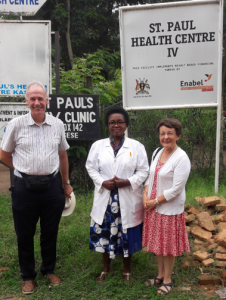COVID-19 Statement by Jamie’s Fund
At the beginning of March, Jamie’s Fund was delighted to support another mhGAP* Train the Trainers course. Healthcare workers from nine hospitals were equipped with the skills to teach their clinical colleagues to identify and treat routine forms of mental ill health.
It is unfortunate that this has happened at this time when the world is closing down as a result of the Coronavirus pandemic. Although this virus seems to have been rather slower to spread to Africa than elsewhere in the world, we are beginning to see an acceleration in some places. However, governments in countries such as Uganda have used the time to implement preventative action to try to protect their citizens. In Uganda, for example, there have been measures to control and discourage the movement of people at the borders, schools and universities have been closed, and large scale social, cultural, religious and political gatherings have been suspended.
These measures will inevitably have an impact on the process of cascading the mhGap training, as further workshops will need to be delayed till life returns to more normal. Despite this, the mhGap model has proved to be a strong and effective one and we expect to resume delivery of the training soon after the present measures are eased and it is considered safe to do so. In the meantime, we continue to give our support to the frontline staff in Uganda and to wish them good health.
While our thoughts are very much with the clinicians and patients in Uganda, for us as a charity the present emergency also means that our planned visits to our partners in Uganda have been postponed until the situation improves. However, we also continue to communicate with many of friends, colleagues and partners in Uganda and we can still support them in their planning as they look to grow their mental health services. Perhaps the most important thing, though, is to give them encouragement and to let them know that they are not alone. They need this message now, especially now.
We are still able to send funds and continue to support many important initiatives as well as look at new projects and you can help. We recognise that there is a great deal of uncertainty and concern about incomes and jobs in our own country but if you are able to help, please click on the DONATE button or send messages of support which we can pass on to staff in Uganda.
Linda Shuttleworth, Trustee, Jamie’s Fund.
*mhGap is a World Health Organisation programme designed to give non-mental health clinicians, particularly in low and middle income countries, a good understanding of mental illness so that they can diagnose and treat many of the more straightforward conditions.

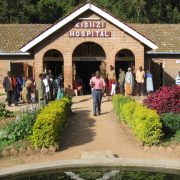
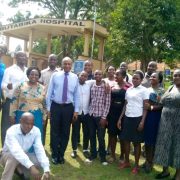
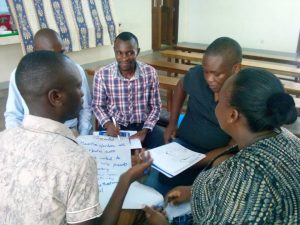
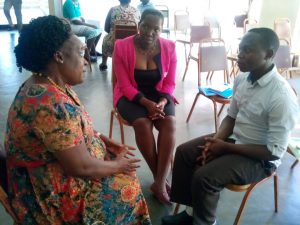
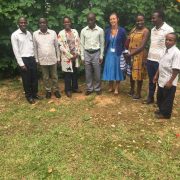
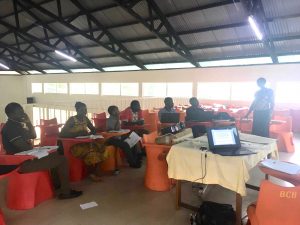
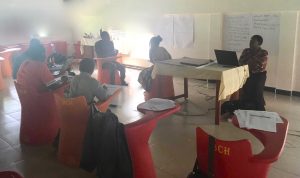
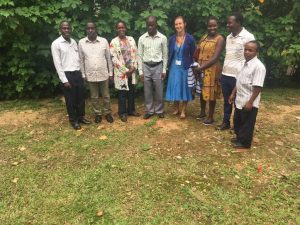
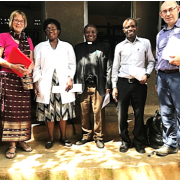
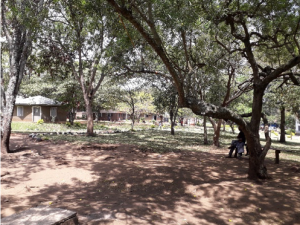 We first visited St Paul’s in Kasese in November 2018. St Paul’s is a Health Centre IV, essentially a small hospital, on the edge of town.
We first visited St Paul’s in Kasese in November 2018. St Paul’s is a Health Centre IV, essentially a small hospital, on the edge of town.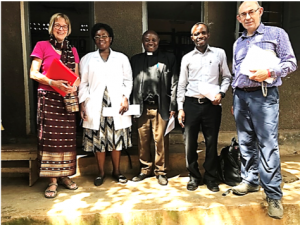 Apart from a psychologist colleague in the HIV/AIDs service, at that stage Sudaat was a little isolated professionally, and perhaps needed support to gainmore confidence in her role.
Apart from a psychologist colleague in the HIV/AIDs service, at that stage Sudaat was a little isolated professionally, and perhaps needed support to gainmore confidence in her role.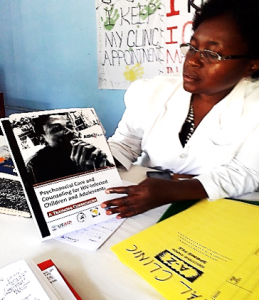 On our visit in September 2019 we found a newly trained and highly enthusiastic team eager to report on their progress and offer ideas for future developments.
On our visit in September 2019 we found a newly trained and highly enthusiastic team eager to report on their progress and offer ideas for future developments.